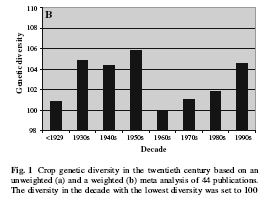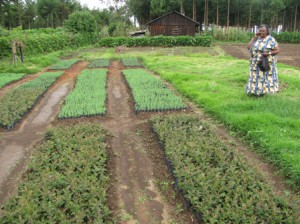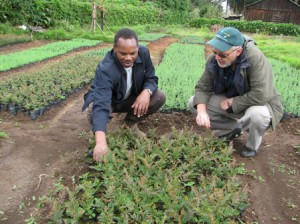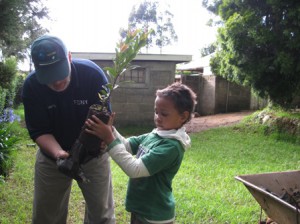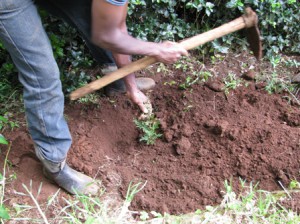Ewan R takes up the cudgels on genetic engineering:
If the western world would invest 1/100th of the amount it blows on new methods of killing people into transgenics developed by the public sector for specific small scale problems the world would likely be a far better place (and the requirement for the other 99/100ths of that arms budget would also probably fall off dramatically)
Not sure why he singles out the western world, but let that slide. To which James responds:
As I see it corporate research is a separate pot of money. If it doesn’t get spent on genetic engineering it’ll get spent on marker assisted breeding for similar traits in similar crops. If for some reason it couldn’t be spent on crop improvement at all, it’d probably be spent on… I don’t know… advertising. … [M]oney spent in commercial research isn’t at the expense of humanitarian projects so it isn’t (or shouldn’t be) begrudged. (And when/if nitrogen use efficiency and drought resistant traits make it to market they’ll be worth every penny of that price tag.)
Which neatly encapsulates several of the ideas swirling around. Ewan is probably right that 1% of the “death” budget would improve life for billions of people. And James is right that the many pots of money simply aren’t fungible. What strikes me is that these kinds of points are discussed at our level, but the high-ups just don’t seem interested. In my naiveté I’d have thought that world leaders, business titans and gung-ho philanthropists would be more interested in finding out whether different approaches to their concerns might in fact be worthwhile. I guess they have more important things to think about.
